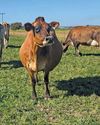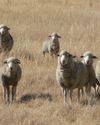試す 金 - 無料
Women are 'saviours' or 'victims' in the climate change debate: why this is a problem
Farmer's Weekly
|February 14, 2025
By avoiding the portrayal of women as either 'victims' or 'saviours' in climate and development literature, we can ensure that building sustainable economies does not reproduce gender injustices, write Prof Naila Kabeer, researcher Chung-Ah Baek, and Prof Deepta Chopra.

"Certain stereotypes about women have become commonplace in climate and development literature. One example is that women are either represented as 'saviours' who protect nature, or as 'victims' more vulnerable to climate impacts than men and less equipped to cope.
Simple either/or ways of seeing women overlook the power dynamics and structural factors that give rise to the stereotypes.
Based on our decades of research into gender issues and the environment, we use evidence from the global south to unpack underlying assumptions. We call for a more complex framing of gender, care and climate change.
This will help ensure that building sustainable economies doesn't reproduce gender injustices.
WOMEN AS SAVIOURS
The idea of women as 'saviours' generally revolves around their role in unpaid care work and their stake in preserving natural resources. Women and girls bear more than their share of responsibility for unpaid work essential to daily survival and intergenerational care in their communities.
This inequality, rooted in long-standing patriarchal norms, in turn generates inequalities in opportunities to make a living.
It is necessary to assess how these inequalities play out among different social groups. For example, women from more affluent classes generally outsource their unpaid care duties to paid workers, usually women, from poorer, often socially marginalised, households. That allows the more affluent to get better paid and formal employment. They feature far less in the 'women as saviour' literature on climate change.
By contrast, women from marginalised and lowincome households have no choice but to rely on their own unpaid labour to care for their families.
They also do labour-intensive tasks like fetching fuel and water and maintaining buildings without modern conveniences. They take care of family well-being without accessible public services.
このストーリーは、Farmer's Weekly の February 14, 2025 版からのものです。
Magzter GOLD を購読すると、厳選された何千ものプレミアム記事や、10,000 以上の雑誌や新聞にアクセスできます。
すでに購読者ですか? サインイン
Farmer's Weekly からのその他のストーリー
Farmer's Weekly
Farmers 'unilateral victims' of climate
Gyeongbuk Provincial Council member Choi Taerim has demanded immediate and substantial support for apple farmers in the South Korean province, urging immediate measures for apple farmers affected by heat damage be implemented, The Asia Business Daily recently reported.
1 min
November 21-28, 2025

Farmer's Weekly
Top agri workers celebrated in the Western Cape
Shannon Robertson, assistant livestock manager at Boschendal near Franschhoek, was crowned the overall winner of the 2025 Western Cape Prestige Agri Awards, held in Durbanville.
1 min
November 21-28, 2025

Farmer's Weekly
Smart dairying: running Jerseys on pasture
The dairy farming sector has seen innovation in milk parlour and cow comfort technology that have allowed farmers to not only yield higher volumes, but extend the productive lifespan of their cows. Albrecht de Jager told Henning Naudé about his approach to maintaining a pasture-raised Jersey herd while utilising precise data measuring technology to ensure quality milk output and optimal cow comfort.
6 mins
November 21-28, 2025

Farmer's Weekly
High-performance dairy farming in the Eastern Cape: the Rufus Dreyer approach
Dairy farming is often described as one of the most technically demanding and strategically complex branches of agriculture.
6 mins
November 21-28, 2025

Farmer's Weekly
Design your stables and camps to assist in AHS control
Keep horses away from areas where disease-carrying midges multiply, like natural pools, lakes, streams and dams, advises Dr Mac.
2 mins
November 21-28, 2025

Farmer's Weekly
The rolling chant that has echoed through SA over the past 30 years
Johan van der Nest is renowned in auction circles and was the first freelance stud-stock auctioneer to begin operating in South Africa.
10 mins
November 21-28, 2025

Farmer's Weekly
Flight from the Red Army
The fall of the Third Reich in 1945 was defined by the Red Army's brutal invasion of Germany. Mike Burgess tells how the Hoppe family trekked from Finowfurt near Berlin to Preetz in Schleswig-Holstein to escape the brutality.
6 mins
November 21-28, 2025

Farmer's Weekly
How to plan a pre-sale feeding programme
Proper feeding of animals before a sale can help producers catch the eye of buyers and increase profits, but it is important to choose the right ration.
8 mins
November 21-28, 2025

Farmer's Weekly
How women are transforming coffee production in Kenya
A group of Kenyan smallholder women farmers are transforming the country's high-value coffee sector by pooling their resources.
5 mins
November 21-28, 2025

Farmer's Weekly
Tough times ahead for SA's grain farmers
Grain farmers face a difficult year ahead with lower grain prices and high production costs
3 mins
November 21-28, 2025
Listen
Translate
Change font size
